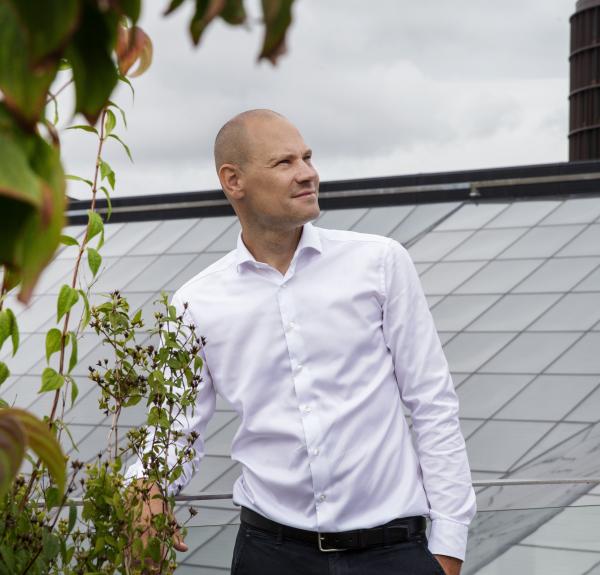Water’s Strong Linkages to Peace
Guest Article by Mads Helleberg Dorff, director of Danish Water Industries
5 Apr 2024 by The Water Diplomat

This year’s theme for the World Water Day was been “Water for peace”. This is a powerful signal because it is time to include water when we think about security. Unequal access to clean freshwater and disease-causing wastewater are major drivers of tension and conflict. Climate change, population growth, and increased water consumption for industry and energy will accelerate this global development. The anticipated consequences include heightened migration and an increase in armed conflicts related to water.
In a European context, it is particularly the water problems in Africa and the Middle East that constitute the potentially largest destabilising factor. According to the World Resources Institute, North Africa, and the Middle East (MENA) are today the world’s most water-challenged region, and the situation will only worsen towards 2050, when the entire population will suffer from water scarcity.
This deeply concerning water scarcity occurs in parallel with exponential population growth leading up to 2050, which will result in the doubling of the population in the MENA region to 725 million people. It is evident that this development is fragile and unsustainable, and it will likely trigger migration and significantly increase the risk of local conflicts and wars over water resources. This trend also holds true for the rest of Africa.
The development mentioned above is one of the reasons why NATO, in its annual security foresight from January, clearly emphasises that water challenges will exponentially increase migration movements, thereby provoking economic and social instability. Europe is particularly under pressure, and NATO also predicts that authoritarian states like Russia will exploit water challenges to fuel radicalisation and conflicts. Most recently, Weekendavisen, a weekly Danish newspaper, reported that Russia plans to send hundreds of thousands of African migrants through Africa and the Maghreb, across the Mediterranean, and up through Italy and France. Independent of Russia’s plans, we can already observe rising migration. According to the European Border and Coast Guard Agency (frontex) nearly 400,000 illegal migrants crossed the EU border in 2023, the highest level since 2016.
The above development is one of the reasons why the Danish Defense Intelligence Service, in its latest risk assessment, highlights coups and armed uprisings in countries such as Mali, Burkina Faso, and Niger as consequences of water scarcity. However, the water crisis is even more significant as a global security problem. The Pacific Institute reported from 2017 to 2022 a global increase of 550% in number of armed conflicts related to water – raising from 47 to 230 conflicts. Unfortunately, the trend for 2023 does not look any better. Water is increasingly being used as a weapon, as exemplified by the conflict in Ukraine. In the first three months of the war, 64 specific water-related attacks were recorded in Ukraine according to the scientific journal Nature. This underscores how water is also weaponized!
It is time for the water crisis to receive the appropriate attention in security and foreign policy. The threat to security is dominated by Russia in the short term and China in the longer term, while for the softer “security policy themes,” it mostly revolves around cybersecurity, energy supply, and access to critical raw materials. While these are certainly relevant, we often overlook the role of water as an underlying factor in creating crises, migration, conflicts, and wars, which we subsequently must address. Both NATO and the UN have recognized this, but there is still insufficient political awareness in many countries.
Fortunately, there is a great opportunity for politicians to harness the potential of water. Better water solutions that are in demand worldwide and can be a powerful asset in security and foreign policy. We need to make these investments all around the globe to face the new security challenges. So let the freshwater flow and wastewater be purified for the benefit of the EU and the whole world.
